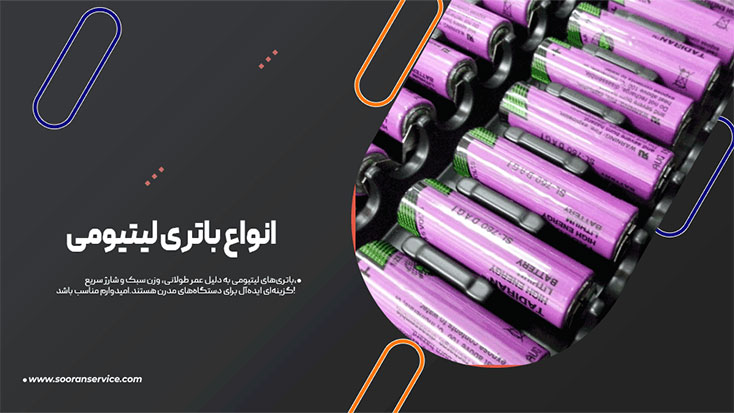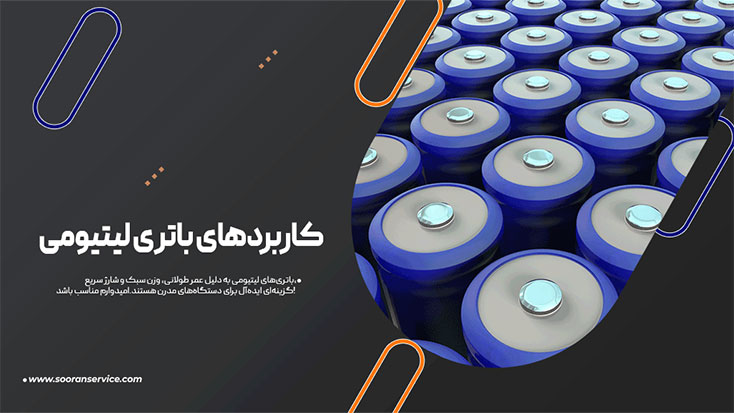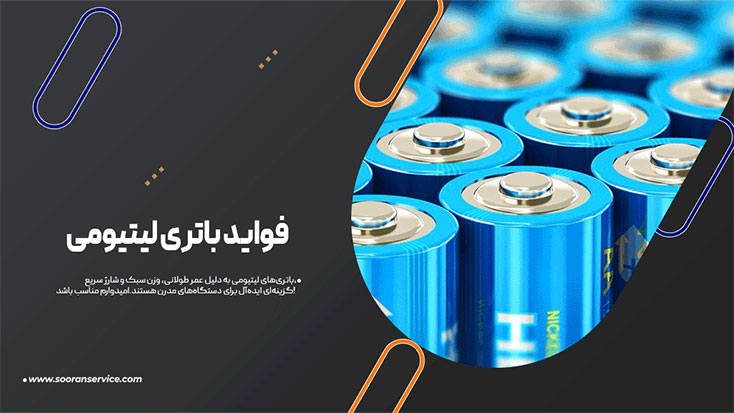Lithium batteries are among the most advanced and widely used types of batteries in the modern world. Thanks to their numerous advantages, they have earned a prominent place across various industries. These batteries are an ideal choice for electronic devices such as smartphones, laptops, electric vehicles, and solar energy storage systems due to their lightweight design, high energy capacity, long lifespan, and fast charging capability.
In addition, lithium batteries contribute to environmental sustainability by reducing ecological impact compared to traditional batteries, supporting the global shift toward clean and renewable energy solutions. As a result, they play a vital role in driving the development of sustainable technologies.
In this article, we will take a closer look at the key benefits of lithium batteries and their diverse applications in modern life.
What Is a Lithium Battery?
Lithium batteries are among the most advanced types of batteries, known for their high energy density and lightweight design, which have revolutionized the electronics industry.
These batteries operate by the movement of lithium ions between the anode and cathode. When the battery discharges, lithium ions move from the anode to the cathode, generating an electrical current. During charging, this process is reversed, and the ions return to the anode.
A lithium battery is typically composed of four main components: anode, cathode, electrolyte, and separator.

Types of Lithium Batteries
There are several types of lithium batteries, each with different characteristics and chemical compositions. Below, we introduce some of the most important types of lithium batteries:
- Lithium-ion Battery:This is the most common type of lithium battery used in most portable electronic devices. In these batteries, lithium ions move between the anode and the cathode and remain in circulation.
- Lithium-polymer Battery:This type of battery uses a polymer electrolyte instead of a liquid electrolyte. In fact, this makes the batteries more flexible and lighter, allowing them to be produced in various shapes. However, their energy density may be slightly lower than that of lithium-ion batteries.
- Lithium Iron Phosphate Battery: These batteries use lithium iron phosphate as the cathode material. They are safer than other types of lithium batteries, have a longer lifespan, and are more resistant to high temperatures. However, their energy density is lower.
- Lithium Cobalt Oxide Battery: These batteries have high energy density and are suitable for devices that require a large amount of power, such as laptops and smartphones. However, they are more expensive than other types of lithium batteries and also have a shorter lifespan.
Benefits of Lithium Batteries
Lithium batteries, due to their unique features, offer many advantages that have made them highly valued in various industries. Among the main benefits of these batteries are lightweight design and high energy density, which allow them to store more energy in a smaller space.
Their low weight makes lithium batteries ideal for portable devices such as smartphones, tablets, and laptops.
In addition, lithium batteries have a long lifespan and can be recharged faster compared to older batteries such as nickel-cadmium. The high energy density allows electronic devices to be smaller, lighter, and operate longer on a single charge.
These batteries also have high chemical stability, which improves their safety and reduces the risk of leaking hazardous chemicals. It is worth noting that these batteries lose very little energy even when not in use.
From an environmental perspective, lithium batteries also have significant advantages. Compared to older types of batteries, they have less environmental impact and help reduce greenhouse gas emissions through their use in electric vehicles and renewable energy storage systems.
These characteristics make lithium batteries a key technology for a sustainable future.

Applications of Lithium Batteries
Due to their numerous advantages, lithium batteries are widely used in various industries and devices, playing an important role in technological advancement and improving the quality of human life.
- Mobile phones and smartphones: Lithium batteries supply the energy required for powerful processors and high-quality displays in modern smartphones.
- Laptops and tablets: These batteries allow users to work for long periods without connecting to power.
- Digital cameras: Lithium batteries enable cameras to take more photos and record longer videos.
- Electric vehicles: Lithium batteries are the main energy source in electric vehicles, allowing them to travel long distances without refueling.
- Electric bicycles: Lithium batteries power electric bikes, allowing riders to travel longer distances with electrical assistance.
- Electric drills: These batteries power electric drills and enable them to perform heavy-duty tasks.
- Electric saws: Lithium batteries allow electric saws to cut wood and metal efficiently.
- Night vision devices: They power night vision equipment, allowing operation in complete darkness.
- Industrial energy storage systems: Lithium batteries can store energy generated by wind and solar power plants and also help stabilize the electrical grid.
Conclusion
In conclusion, as mentioned, lithium batteries have become one of the key innovations in the field of energy and technology, creating a major transformation in modern life.
The advantages of lithium batteries — such as high efficiency, long lifespan, lightweight design, and environmental sustainability — make them an ideal choice for electronic devices and sustainable energy storage solutions.
With the continued adoption of this technology, significant progress can be made toward reducing environmental pollution and expanding the use of renewable energy.
Lithium batteries not only meet today’s needs but also offer an innovative solution for the future.
However, it is important to note that before using lithium batteries, obtaining the necessary information and guidance from professionals is highly recommended.
For further information and expert advice, please contact us.




No comments yet.